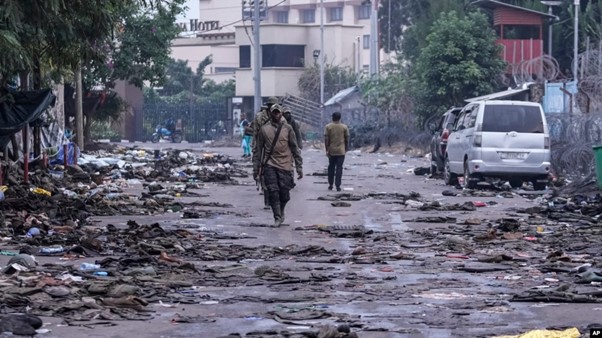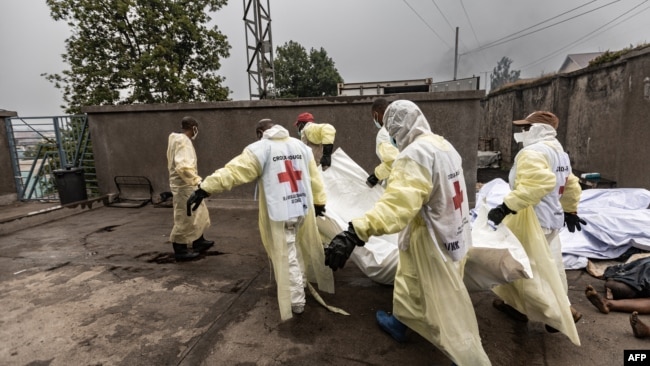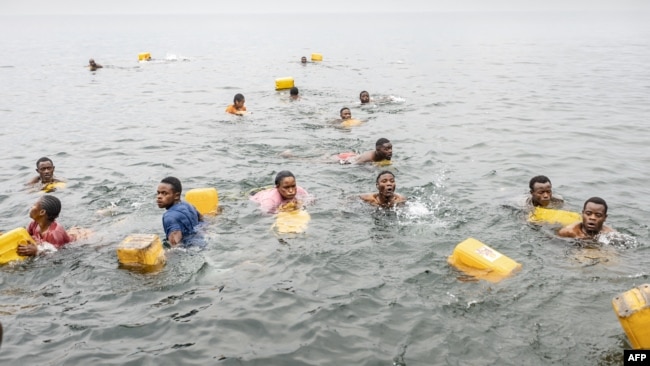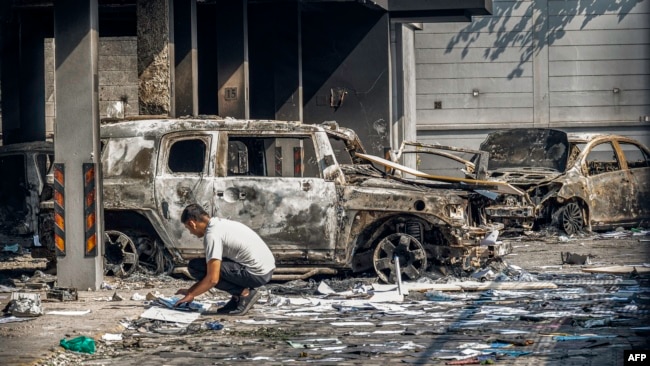“There is, however, continued sporadic shooting, but an overall reduction in exchanges of fire within the city,” U.N. spokesperson Stephane Dujarric told reporters. “Continued clashes have been reported in surrounding areas, including in Sake, northwest of Goma.”
Dujarric said bodies were in the streets, and humanitarians report at least 2,000 people have been injured by weapons and shrapnel since the fighting escalated.
In early January, M23 rebels broke a ceasefire agreement, launching a large-scale offensive in the mineral-rich east with the support of the Rwandan army. On Monday, M23 said it had captured Goma, the capital of North Kivu province and a city of more than 2 million people, thousands of whom have been displaced from other conflict areas. Rwanda has denied accusations that it supports the rebels.
Asked who controls the city, Dujarric said the U.N. assessment is that the M23 rebels clearly have “the upper hand.”
The U.N. has a peacekeeping mission in eastern Congo known as MONUSCO, currently with about 10,000 troops and police tasked with protecting civilians and disarming combatants. It has been in the process of drawing down its presence at the request of the Congolese government. In June, it left neighboring South Kivu province entirely. The rebels are reported to be pushing toward its capital, Bukavu.
In and around Goma, MONUSCO has reinforced its positions to counter the rebels’ advance deploying a quick reaction force, a rapid deployment battalion, a reserve battalion, a platoon of special forces and an artillery battery.
“The mission's priority right now remains the protection of its personnel, its assets and the many civilians sheltering within U.N. premises,” Dujarric said. “Our peacekeepers are also planning on sending out patrols today in Goma to assess the situation, to conduct resupplies and assess routes.”
The U.N. says Goma’s airport remains closed, halting the flow of humanitarian supplies. Most of the roads connecting Goma with the rest of the country are also closed. Water and electricity have been cut off since Sunday, and internet access has been interrupted since Monday. Only mobile phones are working.
In the capital, Kinshasa, the situation was also calm Wednesday. Dujarric said the main roads were reportedly empty, and supermarkets were closed because of the high risk of looting. On Tuesday, protesters attacked, looted and burned some embassies, including those of Belgium, France and Rwanda. The United States said Tuesday it was closing its embassy until further notice. On Wednesday it advised Americans not to travel to the Democratic Republic of Congo.
The U.N. Security Council and Secretary-General Antonio Guterres have called for the M23 to immediately cease hostilities and withdraw from occupied territories. They have also called for the withdrawal of Rwandan forces and a return to the Luanda process of mediation overseen by Angolan President Joao Lourenco.
The East African Community, which includes DRC and Rwanda among its eight members, was expected to hold an emergency summit Wednesday evening. Reuters reported that Rwandan President Paul Kagame would attend, but Congolese President Felix Tshisekedi was not expected to participate.
Before the latest round of violence, eastern DRC was mired in one of the largest and most protracted humanitarian crises in the world, with nearly 6.5 million people displaced due to efforts by armed groups to seize control of the country’s valuable mineral deposits. By Margaret Besheer, VOA









